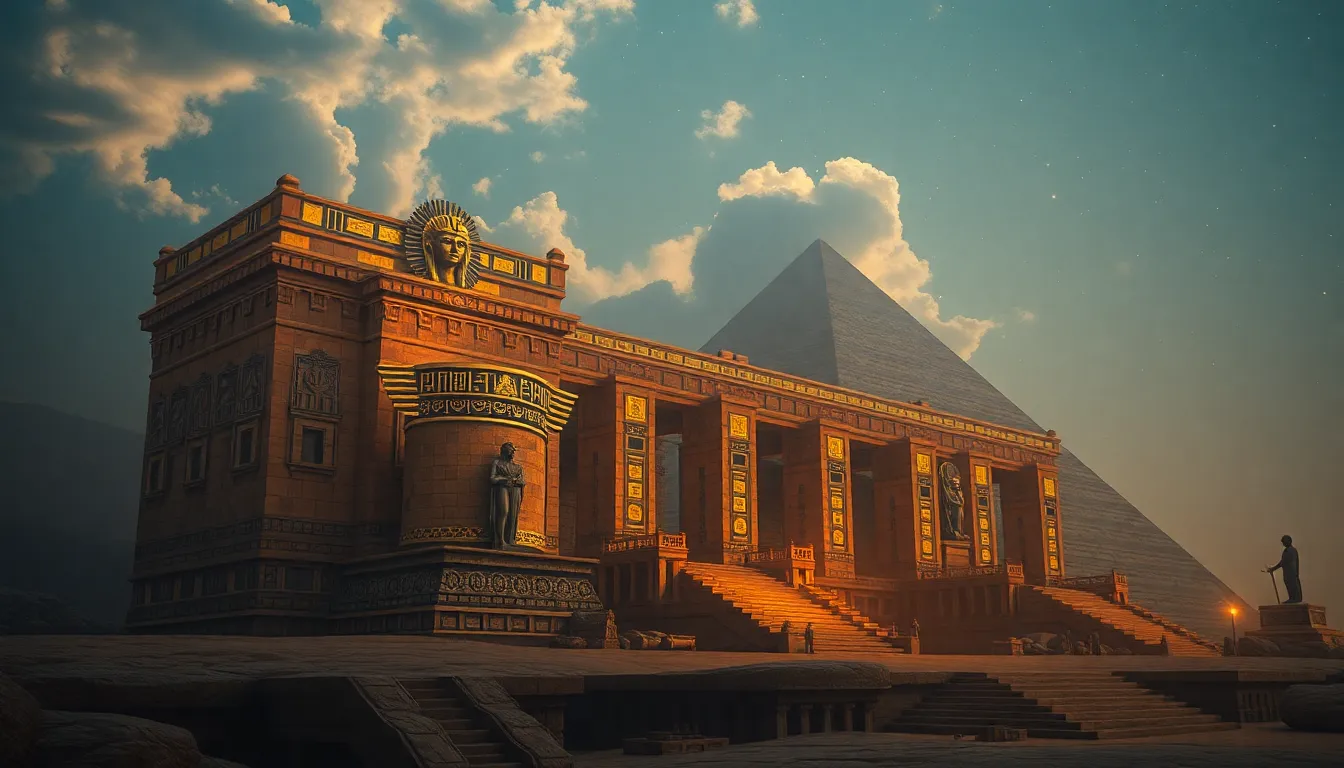Unlocking the Secrets of Egyptian Cosmology
I. Introduction to Egyptian Cosmology
Egyptian cosmology refers to the ancient Egyptians’ understanding of the universe and their place within it. This intricate worldview encompassed not only the physical aspects of the cosmos, such as the stars and the earth, but also the spiritual and mythological dimensions that shaped their beliefs.
Cosmology held significant importance in ancient Egyptian culture, influencing their religion, art, and daily life. It served as a framework for understanding the natural world and the divine forces that governed it. The ancient Egyptians viewed the cosmos as a harmonious entity, where every element had a purpose and a relationship with the others.
The purpose of this article is to delve into the key elements of Egyptian cosmology and uncover the secrets that have fascinated scholars and enthusiasts alike for centuries.
II. Historical Context of Egyptian Cosmology
The evolution of Egyptian cosmological beliefs spans thousands of years, from the Old Kingdom (c. 2686–2181 BCE) to the Ptolemaic period (c. 332–30 BCE). Throughout this timeline, cosmology transformed alongside advancements in religion and society.
Key historical figures, such as the Pharaohs, played a crucial role in shaping these beliefs, supported by texts like the Pyramid Texts and later the Coffin Texts, which provided insights into the afterlife and cosmic order.
The interplay between mythology, religion, and astronomy was vital in shaping Egyptian cosmological views. Observations of celestial events were often intertwined with mythological narratives, creating a rich tapestry of belief that explained the universe and its workings.
III. The Egyptian Creation Myths
Creation myths in ancient Egypt varied significantly, with major narratives emerging from different regions. Three primary creation myths are:
- Heliopolitan Creation Myth: Centered around the sun god Atum, who emerged from the primordial waters of Nun and created the first deities.
- Memphite Creation Myth: Focused on the god Ptah, who conceived the universe in his heart and spoke it into existence.
- Theban Creation Myth: Emphasized the role of Amun, often seen as a hidden god whose power created the world.
These creation stories highlight the significance of deities like Atum, Ra, and Ptah, each representing different aspects of creation. The themes of order versus chaos, life, and death are prevalent throughout these narratives, showcasing the Egyptians’ deep understanding of the universe’s complexities.
IV. The Structure of the Universe in Egyptian Thought
The ancient Egyptians envisioned the universe as a structured entity comprising several realms. Key components include:
- The Duat: The underworld, a mystical realm that souls journeyed through after death, filled with trials and challenges.
- The Celestial Realm: Represented by the sky goddess Nut, who arched over the earth and housed the stars, signifying the divine order of the cosmos.
- The Earth: Personified by Geb, the earth god, who lay beneath Nut, holding the balance between chaos and order.
This structure illustrates how the Egyptians perceived their world as interconnected, with each component playing a vital role in maintaining cosmic harmony.
V. The Role of Deities in Egyptian Cosmology
The pantheon of Egyptian gods played a critical role in cosmology, with each deity embodying different aspects of existence. Key deities include:
- Osiris: The god of the afterlife, representing resurrection and eternal life.
- Isis: The goddess of magic and motherhood, who played a vital role in the life cycle and nurturing of souls.
- Horus: The sky god, often associated with kingship and protection, representing the ongoing cycle of life.
The relationship between these gods and celestial phenomena illustrated the Egyptians’ understanding of the cosmos. For instance, the rising of the star Sirius was linked to the flooding of the Nile, a crucial annual event for agriculture.
VI. Astronomical Observations and Their Importance
The ancient Egyptians were skilled astronomers, employing various methods of observation and measurement to understand the cosmos. Their contributions include:
- Calendrical Systems: They developed a solar calendar based on a 365-day year, which was crucial for agricultural planning.
- Temple Alignments: Many temples and pyramids were aligned with celestial bodies, reflecting the importance of astronomy in their religious practices.
- Star Charts: They created detailed star charts to track celestial movements, which aided in navigation and agricultural cycles.
These astronomical observations were integral to their cosmological beliefs, emphasizing the connection between the heavens and earthly life.
VII. The Afterlife and Its Cosmological Implications
The concept of the afterlife was deeply intertwined with Egyptian cosmology. The afterlife was viewed as a continuation of existence, governed by cosmic principles. Key aspects include:
- The Book of the Dead: A crucial text that guided souls through the Duat, providing spells and instructions for overcoming challenges.
- Judgment and Resurrection: The weighing of the heart against the feather of Ma’at determined a soul’s fate, embodying the principles of truth and justice.
This belief system underscored the importance of living a just life, as one’s actions influenced their fate in the afterlife, reflecting the cosmic order maintained by the deities.
VIII. Conclusion: The Legacy of Egyptian Cosmology
The cosmological beliefs of ancient Egypt have left an enduring legacy, influencing later cultures and religions. Elements of Egyptian cosmology can be seen in various spiritual practices and philosophies, emphasizing a connection between the earthly and the divine.
Modern interpretations of Egyptian cosmology continue to reveal insights into their worldview, showcasing the relevance of these ancient beliefs in contemporary discussions about existence, the universe, and spirituality.
In conclusion, the mysteries and insights of Egyptian cosmology invite us to explore the profound connections between their mythology, religion, and the cosmos, enriching our understanding of one of history’s most fascinating civilizations.




